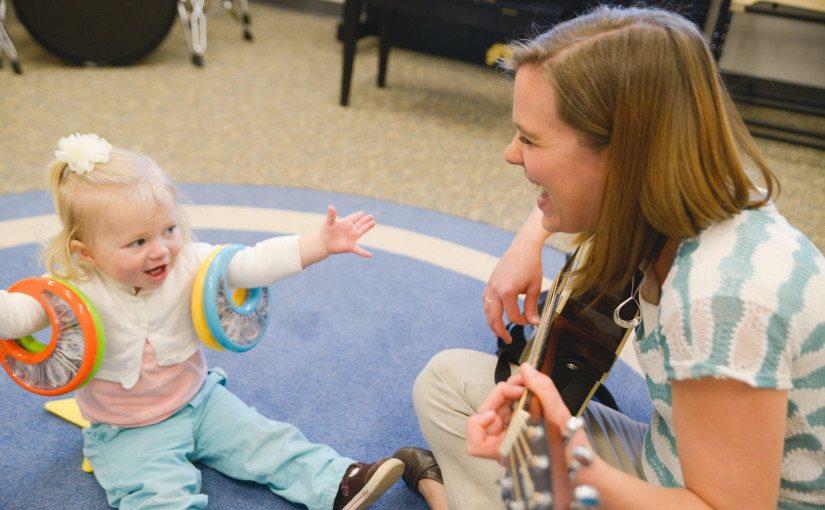Two Powerful Ways to Utilize Music Therapy in Early Intervention
Music therapy is a powerful way to help kids make significant progress in the early years. And getting started may be much easier than you think.
If you are reading this you have most likely heard about the benefits of music therapy, and you are considering including it to further improve your early intervention program.
If this is the case you have a few options for getting started. Most early intervention programs utilize music therapy in one or two different ways, including:
- Individual music therapy services, and/or
- Music therapy groups
Because Music Therapists can obtain professional authorization to serve as adjunct providers in Early Intervention, it makes much easier to include this service for your program. The Music Therapist can be listed as a provider on the IFSP and help address and develop goals for each child they see.
So what do services look like? Here’s some basic info to give you a starting point, then you can make adjustments to create a program that meets your unique needs.
Individual Music Therapy
An Early Intervention program can contract with a music therapist or hire one on staff to provide music therapy evaluations and 1:1 sessions to those who will benefit the most.
Because it is not a required service, music therapy is best utilized for those children who have not shown expected progress on their IFSP goals, and who require additional services in order to progress. Music Therapy may be just the service they need, and the intensity and frequency can vary based on the individual needs of the child.
Because music therapists address domains similar to speech, occupational, and physical therapists, collaboration can play a huge role in service provision. When a music therapist and speech therapist collaborate to address shared goals, a child can make substantial progress.
While it is often difficult to pay for collaborative services, the professionals can at minimum communicate with one another and address shared goals at different times.
Music Therapy Groups
By far the most common application of music therapy in early intervention is to provide music therapy groups for clients. These groups allow several children to benefit from the service simultaneously, and also allow essential opportunities for socialization.
According to data from the 2012 Utah Baby Watch Early Intervention Program Report, the children receiving Early Intervention services make the least progress in the area of positive social emotional skills and positive social relationships (with 69% of children showing improvement).
This compared to 78% improving in acquisition and use of knowledge and skills and 77% improving in use of appropriate behaviors to meet their needs shows that more can be done to promote social emotional development in Early Intervention.
Music Therapy groups provide a natural environment for social emotional development. As the child and parent engage in music making, singing, movement, and instrument play, they learn to engage with peers and parents in a positive way.
In fact, social development is the most significant increase noted by those who have participated in our parent child music therapy program. The children increase in confidence, ability to relate to others, express and regulate emotions, and willingness to approach and interact with peers.
These classes are designed to include typical peers—often the siblings of the children receiving Early Intervention services. Classes are led by a Board Certified Music Therapist (MT-BC) and focus on designing interventions to meet the unique needs of participants. The MT-BC develops a music therapy treatment plan for each child and works to address those goals during groups.
Children who participate in these groups make strides in a variety of areas outlined in the Baby Watch requirements, including:
- Positive social emotional skills,
- Acquisition and use of knowledge and skills (such as early language and communication), and
- Use of appropriate behaviors to meet their needs.
The children attend the music classes for 12 weeks, during which time they are able to gain rapport and progress on their goals. This progress is shared with the Early Intervention team at the end of the 12 weeks and can be added into the IFSP. If certain children are found to respond especially well to music therapy they may continue for another 12 weeks in the group program, or be referred for individual music therapy services or consultation.
If you’re interested in learning more about how music therapy can benefit your program, you can request a FREE 30 minute In-Service. During the in-service your staff will learn about the benefits of music therapy, what it looks like, and how to include it in your program.
Contact Us for a FREE In Service
This is part 3 of a 4-part series on music therapy in Early Intervention programs. All related posts include:
#1 Rationale for Music Therapy in Early Intervention
#2 Music Therapy IS a Related Service in Early Intervention

